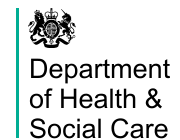Ethical and Regulatory Approval
Throughout vaccine R&D there are many regulatory and ethical considerations, and researchers should engage with relevant bodies as early as possible, so the appropriate advice and input shape the R&D at the right time. There are also several stages where necessary approvals must be obtained, in order to proceed with developing and testing a candidate.
In the UK, the Medicines and Healthcare products Regulatory Agency (MHRA), protects and promotes public health and patient safety by ensuring that medicines, healthcare products and medical equipment meet appropriate standards of safety, quality, performance and effectiveness. Licences for medicines are granted only when a product meets high standards of safety and quality, and works for the purpose intended.
This is not intended to be an exhaustive guide, however, listed below are some of the examples of when regulatory and ethical advice and approvals should be sought:
Preclinical Discovery and Development
- Early TPP considerations - the MHRA can be approached at an early stage, and they can advise on what information will be needed in order to consult the expert group for later approvals. The type of evidence needed in the submission for an MHRA Clinical Trial Authorisation will include mode of action, nature of the target and the relevance of animal models.
- Animal work – The use of animals in experiments and testing is regulated under the Animals (Scientific Procedures) Act 1986 (ASPA). Home Office licensure must be provided at an institutional, personal and project level for the work that is carried out
- Experimental medicine studies of immune responses to pathogens in humans – ethical approval must be obtained. From 31 March 2016, HRA Approval is the process for applying for approvals for all project-based research in the NHS led from England; this brings together the assessment of governance and legal compliance, undertaken by dedicated HRA staff, with the independent REC opinion provided through the UK research ethics service. It replaces the need for local checks of legal compliance and related matters by each participating organisation in England. This allows participating organisations to focus their resources on assessing, arranging and confirming their capacity and capability to deliver the study.
Clinical Development
- Clinical Trial Authorisation (CTA) - formal application to the MHRA for the CTA must be made for trials evaluating the safety or efficacy of the medical product. This includes an IMP dossier with preclinical toxicology data, and any human mechanistic/proof of concept studies.
- Use of genetically modified organisms (GMOs) to produce vaccines for testing in humans – this is a critical bottleneck in vaccine R&D, and any researchers should be aware this is regulated by separate legislation. Further information on this key step is provided on the Use of vaccines classified as GMOs page.
- It is advisable to seek early advice from the MHRA, or from a ‘Qualified Person’ (QP), who may be able to advise on relevant issues around TPP and licensure, and so reduce the overall time taken to take a product to market
- HRA Approval - must be obtained if the research is taking place in the NHS in England, for more information visit the MRC tool on HRA Approval
- Ethical Approval - must be obtained to carry out the trial
Links to resources for clinical trial design and execution
- MHRA - overview
- MHRA - applying for Clinical Trial Authorisation (CTA)
- MHRA - expert advice
- NIHR Clinical Trials Toolkit
- Health Research Authority
Please note, the UKVN bears no responsibility for the content of external websites.


